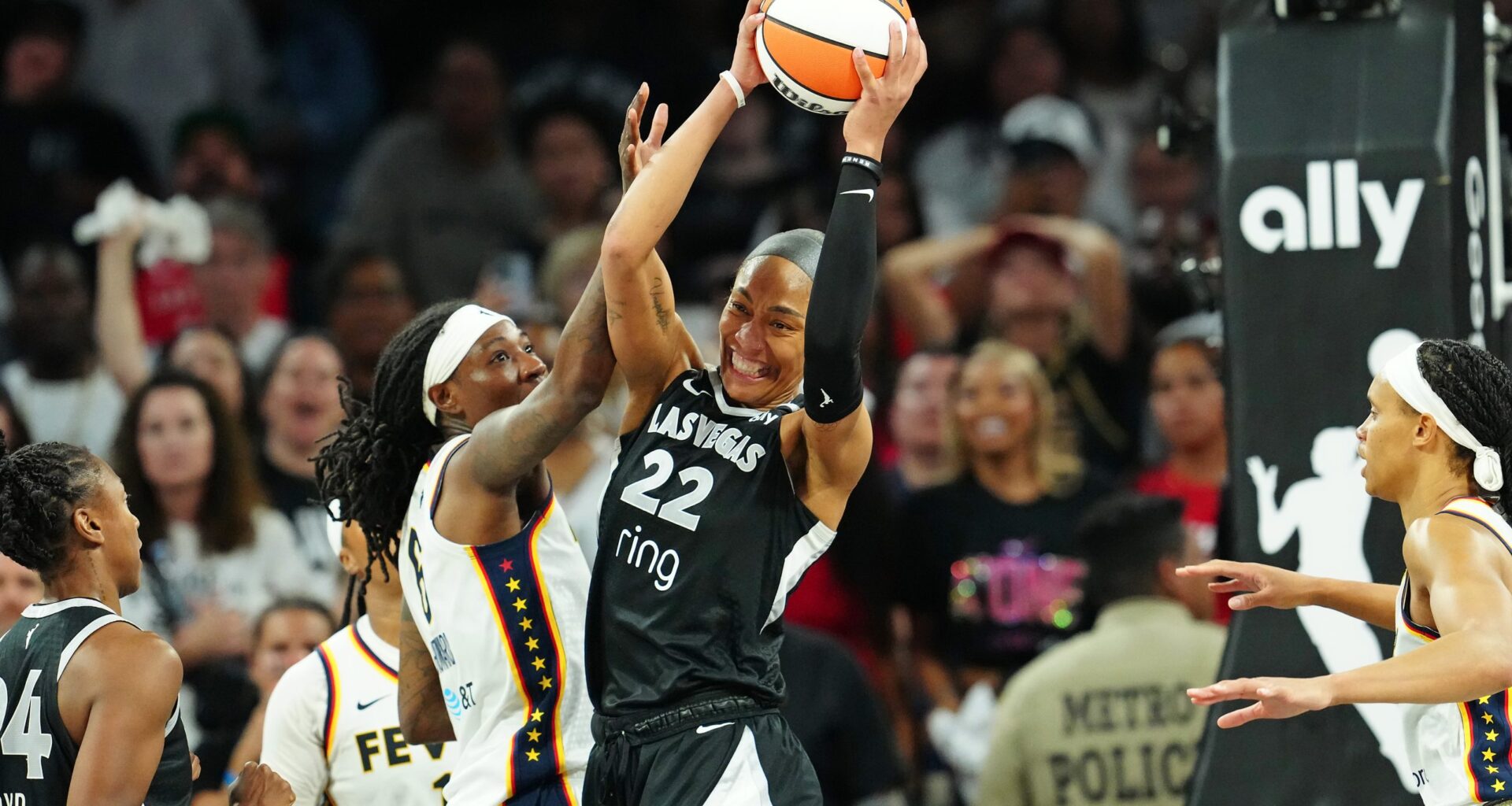A dramatic winner-take-all game between two of the league’s highest-profile teams delivered one of the top WNBA playoff audiences since 1999.
Tuesday’s Fever-Aces WNBA semifinal Game 5 averaged 1.83 million viewers on ESPN2, trailing only Caitlin Clark’s two playoff games last year (2.54M and 1.84M) as the most-watched WNBA playoff game outside of the Finals since 1999.
The Aces’ overtime win, which peaked with 2.1 million viewers, ranks fourth among all playoff games — including the Finals — since 2000, behind the two Clark games and Game 5 of last year’s Finals (Lynx-Liberty: 2.15M).
For the season, Game 5 ranks sixth in viewership behind five other Fever games, four of which featured Clark. Overall, the Fever have played in the nine most-watched WNBA games this season, and that does not include the WNBA All-Star Game, which the franchise hosted in Indianapolis. (Keep in mind that the majority of regular season viewership figures are panel-only, rather than the “Big Data + Panel” figures that became Nielsen currency in September.)
Seven-figure WNBA audiences have become such a frequent occurrence that they are no longer notable. But recall that prior to the start of last season, no WNBA game of any kind had averaged one million viewers since 2008.
The full WNBA semifinals averaged 1.3 million viewers, up 57% from last year. While Nielsen’s February expansion of out-of-home viewing and September rollout of “Big Data + Panel” mean that this year’s numbers have a built-in advantage over prior seasons, that would not fully account for an increase of such size.
The big gains for the semifinals helped counter a double-digit decline for the opening round. Entering the Finals, WNBA playoff games averaged 1.1 million viewers — up 15% from a year ago. Again, keep in mind that these are “Big Data + Panel” figures being compared to last year’s panel-only viewership.
The postseason average figures to benefit further from the newly expanded WNBA Finals. While average viewership figures to take a hit from the absence of New York, series length is often a bigger viewership driver than matchup quality — and the Mercury-Aces series will not have to go the distance in order to be the longest in league history.
